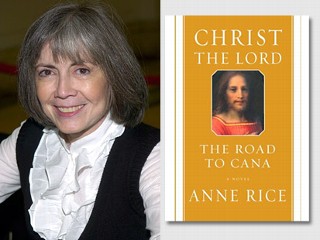 …. being a Christian. Does this move make her a “spiritual” and “follower of Christ” but not “religious” or “in the Catholic Church”?
…. being a Christian. Does this move make her a “spiritual” and “follower of Christ” but not “religious” or “in the Catholic Church”?
How do you read her recent statement?
Let me make a point I’ve made a number of times: You can’t follow Christ and not participate in the Church and in a church. The Church is the Body of Christ.
Anne Rice, the bestselling novelist most popularly known for “Interview with the Vampire” and her other creepy vampire novels, announced on Wednesday that she has officially renounced Christianity.It’s a bold move for the author who has become well-known for her vehement religiosity; the majority of her frequent tweets are related to religion in some way. The author has also recently launched a new series of novels about angels, which debuted in October 2009 with “Angel Time.”Rice declared on her Facebook account that she is “an outsider” in the Christian community:
I refuse to be anti-gay. I refuse to be anti-feminist. I refuse to be anti-artificial birth control. I refuse to be anti-Democrat. I refuse to be anti-secular humanism. I refuse to be anti-science. I refuse to be anti-life.
Rice affirmed that though she has decided to leave the Christian institution, she “remain[s] committed to Christ as always.”
From her FB page:
For those who care, and I understand if you don’t: Today I quit being a Christian. I’m out. I remain committed to Christ as always but not to being “Christian” or to being part of Christianity. It’s simply impossible for me to “belong” to this quarrelsome, hostile, disputatious, and deservedly infamous group. For ten years, I’ve tried. I’ve failed. I’m an outsider. My conscience will allow nothing else.
My faith in Christ is central to my life. My conversion from a pessimistic atheist lost in a world I didn’t understand, to an optimistic believer in a universe created and sustained by a loving God is crucial to me. But following Christ does not mean following His followers. Christ is infinitely more important than Christianity and always will be, no matter what Christianity is, has been, or might become.

